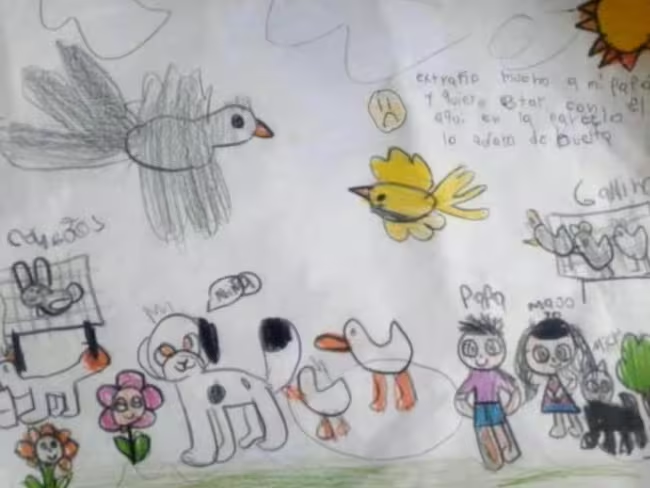The petitioner in this case, a seven-year-old girl, lived in rural Colombia with her grandmother and several animals to whom she has given names; including two dogs, a cat, a group of ducks, and some hens. Petitioner’s father worked as a policeman, so he did not live with the girl full-time, and nor did he see her often. She stated that she felt great sadness because she did not get to see her father much and therefore had to attend psychotherapy. She asserted that the respondent, the police department, refused to transfer her father to a closer police unit. Furthermore, she did not want to move to the city where her father worked because doing so would break up her multispecies family.
In 2023, however, the father was transferred to a closer location, attending to the child’s right to family unity. The judge in that decision held that asking the child to move to the city would disrupt her single-caregiver multispecies family, which would “completely disregard” her physical, social, and economic interests.
The child here requested that the first holding be modified to have her father transferred to a closer police unit, as to uphold her interests and respect family unity, including the animals. In short, she appealed for the protection of her “fundamental rights to a multispecies family unit.”
The court held that the child may bring this Tutela action as a safeguard of her fundamental rights. It states that a “tutela action is inadmissible when there are other judicial means of defense.” Given the child petitioner’s young age, she does not have standing nor ability to bring her case any other way.
The court discussed concepts of fundamental constitutional rights regarding intervention, labor regulations, and appropriate use of discretion. The court recognized minors’ autonomy and intellectual ability as well as their unique fundamental needs, including family unity, for primary purposes of development. Interestingly, the court discussed the “fundamental right of minors to love” in regard to family unity, emphasizing that minors have the “dignified” right to have a family and to not be separated from it (“right to be rooted”). This, the court stated, required special protection. The court also made point to recognize “the right to a multispecies family unity” via means of “any right[s] ‘inherent to the human person.’” The court noted that families vary in composition, and that animals can very much be an integral part of a family with benefits for both the people and the animal(s). According to the court, a family is “united by bonds of solidarity, love and respect, and characterized by unity of life or destiny.”
The court further discusses animals’ inherent value as sentient beings and the importance of respecting nature. It also made note of animals as a subject of rights, and that although this court did not recognize animals as being such, it does not negate their important place within a human family.
The former judgment was modified “in order to protect the fundamental rights to equality, human dignity, human and multi-species family unity, and the rootedness of the minor plaintiff…”
In the ruling, the tribunal, composed of three judges, summarized the resolution in plain words to ensure the minor plaintiff could understand the decision. In the summary, the court stated:
"Dear M.J., three judges have studied your situation. We respect and protect your decision to love and value your companion animals as members of your family, as well as the importance and significance that living and being educated in the countryside alongside your multispecies family, has to you. After analyzing your case, we realized that your father's bosses violated your rights by transferring him without considering that your mother cannot be close to you at this time and that he is the only person who can take care of you, along with your grandmother. Moreover, they did not take into account your right to live with the other members of your family: Niña, Susi, Michi, Mili, Pio Pio, Nana Gallina, la Colorada, Magi, and Nanapato. For this reason, your father's bosses will have to review his transfer request again, and instead of rejecting it without sufficient reasons, they should explore other alternatives, such as transferring other officers who are not in situations as challenging as your family's. We will always be here to ensure your well-being and protect your rights."

Drawing submitted by the minor plaintiff as evidence depicting her family as multispecies. Source: WRadio Colombia.